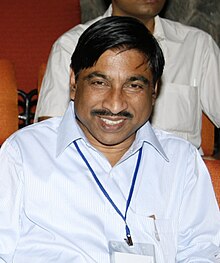Padmasree Muhammed K K | |
|---|---|
 | |
| Regional Director (North), Archaeological Survey of India | |
| In office 2012–2019 | |
| Preceded by | Position established |
| Succeeded by | Dr. D. N. Dimri |
| Superintending Archaeologist, Archaeological Survey of India | |
| Offices Held | Delhi (2008-2012), Bhopal (2004-2008), Chhattisgarh (2003-2004), Agra (2001-2003), Patna (1997-2001) |
| Dy. Superintending Archaeologist, Archaeological Survey of India | |
| Offices Held | Goa (1991-1997), Madras (1988-1990) |
| Personal details | |
| Born | 1 July 1952 Kozhikode, Kerala |
| Nationality | Indian |
| Spouse | Rabiya Muhammad |
| Children | Jamshedh Muhammed, Shaheen Muhammed |
| Residence(s) | Kozhikode, Kerala |
| Alma mater | Aligarh Muslim University |
| Awards | Padma Shri (2019) |
Karingamannu Kuzhiyil Muhammed (born 1 July 1952) is an Indian archaeologist who served as the Regional Director (North) of the Archaeological Survey of India (ASI). Muhammed is credited for the discovery of Ibadat Khana, as well as various prominent Buddhist Stupas and Monuments. During his career, he undertook the restoration of the Bateshwar Complex, successfully convincing naxal insurgents and dacoits to cooperate, as well as facelift and restoration of the Dantewada and Bhojeshwar temples.[1][2]
Muhammed also successfully conceived and executed the idea of building Replica Museum, Delhi, which showcases replicas of Indian statues and stone-carved sculptures.[3][4][5]
For his contributions to archeology, he was awarded the Padma Shri in 2019, India's fourth highest civilian honour.[6]
- ^ Cite error: The named reference
Coverage - The Hinduwas invoked but never defined (see the help page). - ^ Cite error: The named reference
Coverage 2 - The Hinduwas invoked but never defined (see the help page). - ^ Cite error: The named reference
Museumwas invoked but never defined (see the help page). - ^ Cite error: The named reference
Replica Museum at Siri Fortwas invoked but never defined (see the help page). - ^ Cite error: The named reference
Replica Museumwas invoked but never defined (see the help page). - ^ "2019 Awardees List".